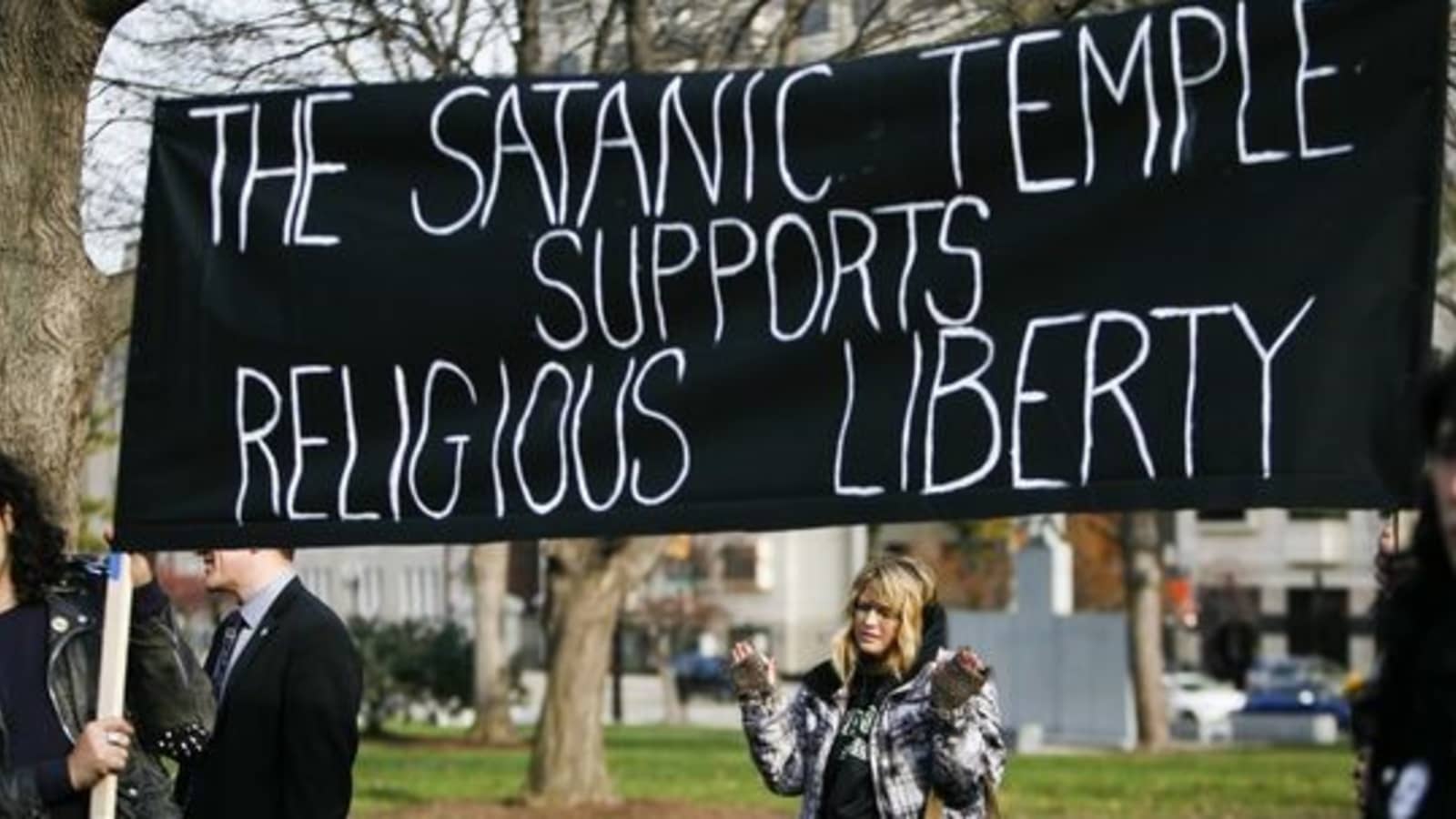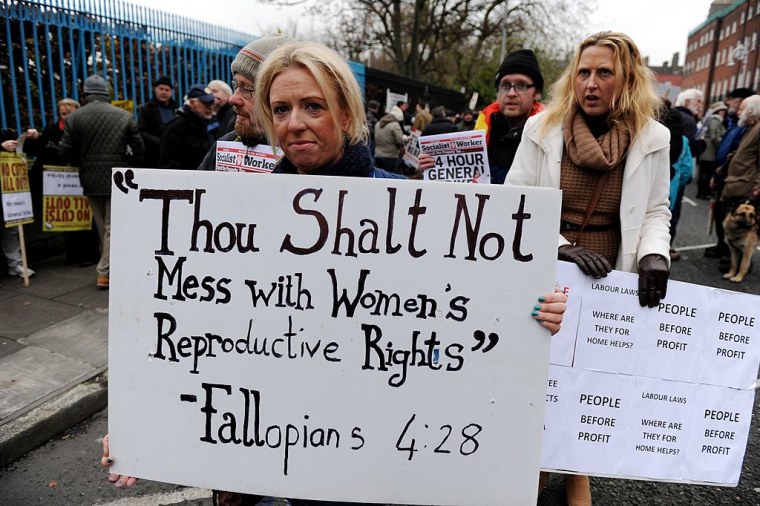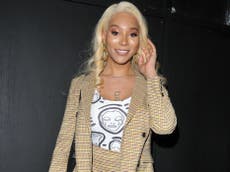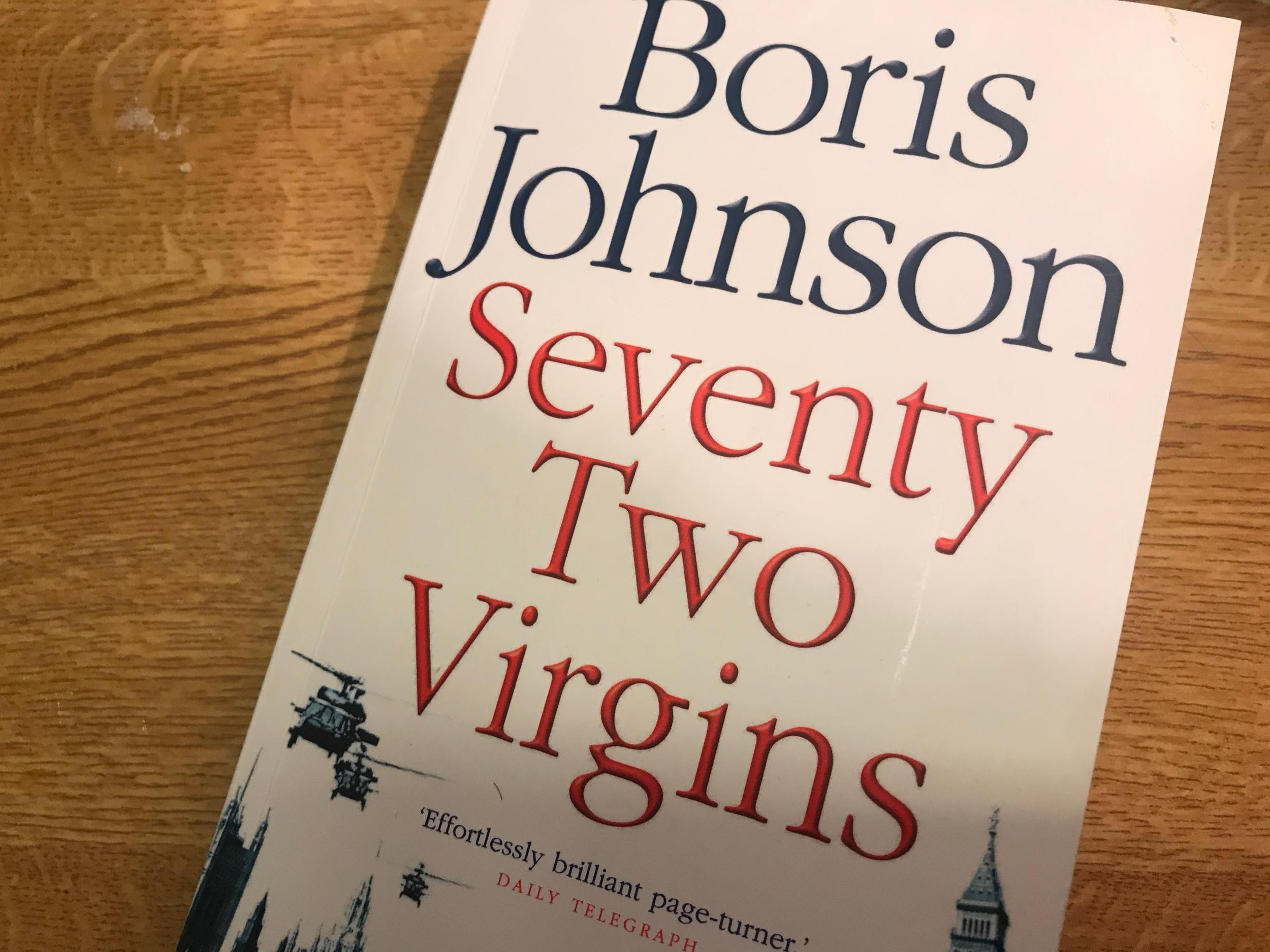Trump administration rolls back Obama-era healthcare protections for transgender people and abortion access with HHS ruling
Move comes in middle of Pride month

Alex Woodward New York
Donald Trump‘s administration has rolled back nondiscrimination healthcare protections for women and transgender people by reversing a rule that would prevent healthcare workers and insurance companies that receive federal funds from refusing to provide services like abortion or gender-affirming care.
The rule changes could allow health providers to deny coverage and care to women and transgender people, as the nation is in the grip of the coronavirus pandemic.
They also arrive in the middle of Pride month on the anniversary of the Pulse massacre, when 49 people were gunned down inside a gay nightclub in Orlando, Florida.
Invoking “religious freedom”, the Department of Health and Human Services had revised a rule under the Affordable Care Act to revert to “the government’s interpretation of sex discrimination according to the plain meaning of the word ‘sex’ as male or female and as determined by biology”.

The changes revoke discrimination protections on the basis of ”gender identity” and sex, including patients seeking an abortion.

https://www.thefader.com/2017/09/08/church-of-satan-missouri-supreme-court

What trans people want you to learn this Transgender Day of Visibility
They are likely to be challenged in court: the American Civil Liberties Union, Lambda Legal and the Human Rights Campaign and other groups have already announced plans to sue the administration.
“In the middle of a global pandemic, with our nation in uproar over a systemic devaluing of Black lives, this administration chose to prioritise a rule change attempting to roll back anti-discrimination protections in health care,” said LGBT+ legal advocacy organisation Lambda Legal. “Despicable doesn’t begin to describe it.”
Human Rights Campaign president Alphonso David, said: ”LGBTQ people should not live in fear that they cannot get the care they need simply because of who they are. It is clear that this administration does not believe that LGBTQ people, or other marginalised communities, deserve equality under the law.”
Initial rules under former president Barack Obama‘s administration established civil rights protections in healthcare, barring discrimination on the basis of race, colour, national origin, age, disability or sex as well as gender identity. Health providers and insurers, under those anti-discrimination rules, would have to cover costs associated with gender-affirming care.
U.S. health agency reverses Obamacare transgender protections
Reuters•June 12, 2020

A sign on an insurance store advertises Obamacare in San Ysidro
WASHINGTON (Reuters) - The U.S. Department of Health and Human Services issued a rule on Friday that would lift anti-discrimination protections under Obamacare for transgender people and women seeking abortions, drawing condemnation from Democratic lawmakers.
The rule reverses some provisions of the Affordable Care Act passed during President Barack Obama's administration, also known as Obamacare, that extended civil rights protections in healthcare to cover areas including gender identity and the termination of a pregnancy.
LGBTQ rights groups, Democratic lawmakers and Democratic-controlled states have decried efforts under the administration of Republican President Donald Trump to erode protections for lesbian, gay, bisexual, transgender and queer citizens. One group said it planned to sue the administration over the new rule.
U.S. House of Representatives Speaker Nancy Pelosi called the decision a "shocking attack on the health and well-being of countless vulnerable communities, including women, LGBTQ individuals, and people of color."
The Trump administration has also sought to restrict access to abortion.
The Health Department, or HHS, said a regulation issued by the Obama administration in 2016 to implement the anti-discrimination Section 1557 of Obamacare had "redefined sex discrimination to include termination of pregnancy and gender identity, which it defined as 'one's internal sense of gender, which may be male, female, neither, or a combination of male and female.'"
That regulation was struck down by a federal court in October 2019.
"HHS will enforce Section 1557 by returning to the government’s interpretation of sex discrimination according to the plain meaning of the word 'sex' as male or female and as determined by biology," the department said on Friday.
The Human Rights Campaign, an LGBTQ advocacy group, said it planned to "sue the Trump administration for exceeding their legal authority and attempting to remove basic health care protections from vulnerable communities including LGBTQ people."
(Reporting by Mohammad Zargham; Editing by Tom Brown and Sonya Hepinstall)
They are likely to be challenged in court: the American Civil Liberties Union, Lambda Legal and the Human Rights Campaign and other groups have already announced plans to sue the administration.
“In the middle of a global pandemic, with our nation in uproar over a systemic devaluing of Black lives, this administration chose to prioritise a rule change attempting to roll back anti-discrimination protections in health care,” said LGBT+ legal advocacy organisation Lambda Legal. “Despicable doesn’t begin to describe it.”
Human Rights Campaign president Alphonso David, said: ”LGBTQ people should not live in fear that they cannot get the care they need simply because of who they are. It is clear that this administration does not believe that LGBTQ people, or other marginalised communities, deserve equality under the law.”
Initial rules under former president Barack Obama‘s administration established civil rights protections in healthcare, barring discrimination on the basis of race, colour, national origin, age, disability or sex as well as gender identity. Health providers and insurers, under those anti-discrimination rules, would have to cover costs associated with gender-affirming care.
U.S. health agency reverses Obamacare transgender protections
Reuters•June 12, 2020

A sign on an insurance store advertises Obamacare in San Ysidro
WASHINGTON (Reuters) - The U.S. Department of Health and Human Services issued a rule on Friday that would lift anti-discrimination protections under Obamacare for transgender people and women seeking abortions, drawing condemnation from Democratic lawmakers.
The rule reverses some provisions of the Affordable Care Act passed during President Barack Obama's administration, also known as Obamacare, that extended civil rights protections in healthcare to cover areas including gender identity and the termination of a pregnancy.
LGBTQ rights groups, Democratic lawmakers and Democratic-controlled states have decried efforts under the administration of Republican President Donald Trump to erode protections for lesbian, gay, bisexual, transgender and queer citizens. One group said it planned to sue the administration over the new rule.
U.S. House of Representatives Speaker Nancy Pelosi called the decision a "shocking attack on the health and well-being of countless vulnerable communities, including women, LGBTQ individuals, and people of color."
The Trump administration has also sought to restrict access to abortion.
The Health Department, or HHS, said a regulation issued by the Obama administration in 2016 to implement the anti-discrimination Section 1557 of Obamacare had "redefined sex discrimination to include termination of pregnancy and gender identity, which it defined as 'one's internal sense of gender, which may be male, female, neither, or a combination of male and female.'"
That regulation was struck down by a federal court in October 2019.
"HHS will enforce Section 1557 by returning to the government’s interpretation of sex discrimination according to the plain meaning of the word 'sex' as male or female and as determined by biology," the department said on Friday.
The Human Rights Campaign, an LGBTQ advocacy group, said it planned to "sue the Trump administration for exceeding their legal authority and attempting to remove basic health care protections from vulnerable communities including LGBTQ people."
(Reporting by Mohammad Zargham; Editing by Tom Brown and Sonya Hepinstall)


























